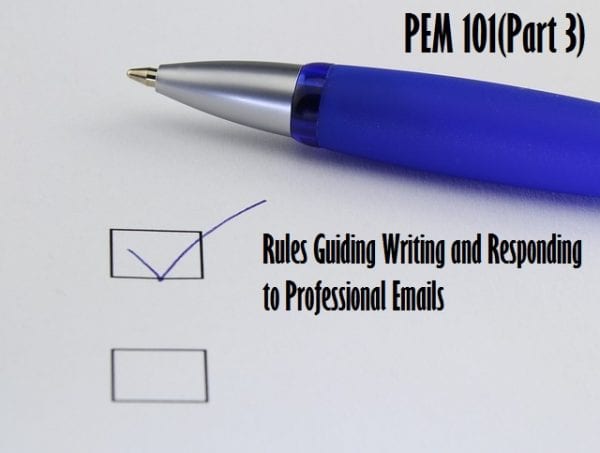A rent increase letter is sometimes alternatively referred to as a rent increase notice or a notice of rent increase form. It serves as a formal notification to renters of the increment. This letter must be issued in accordance with the terms of the lease and applicable state and local tenant laws. Typically, the letter is sent between 30 and 60 days, or an applicable state notice period, before the existing lease ends.
There are certain rules and procedures to follow before raising the rent. In this article, we will discuss some important things to do before increasing the rent and how to write a rent increase letter to send to a tenant.
Key Takeaways a Landlord Should Note Before Increasing the Rent
Rent is ordinarily increased monthly in accordance with the current lease. If the proper procedures and regulations are followed, the landlord can make an increment in the rent without much negotiation with the tenant. The costs of maintaining the property can also cause a landlord to increase the rent.
While their needs and reasons are justified, they ought to be aware that tenants can accept or reject the changes. Below are key takeaways a landlord should note before increasing the rent to avoid disputes with the renters.
- Decide on the new rent. This is no doubt the first step when trying to increase the rent. Be sure that your rent increase won’t scare your tenants off. Make sure your new rent is in line with the other rental properties in the area. Do in-depth research and tailor your rent to match, or come close to the ones in the market. You should also decide whether or not to collect an additional security deposit.
- Consider the reasons that justify the rent increase: There are many reasons why the rent of a unit can unexpectedly go up. It is not realistic to pay the same monetary agreement on the lease from, say, 6 years ago. This is due to factors like inflation, increased costs of maintenance and utility bills, renovations and added amenities that increase the property’s market value, landlord insurance, taxes, and other dues. These should justify the increment because the tenant deserves to know why they are going to be paying more.
- Consult the rental agreement: Before increasing the rent, check the agreement you had with the renters. If the agreement allows you to implement rent increases, proceed with the process. Some rent agreements come with terms and conditions regarding the increment of the rent. You should determine whether it is a month-to-month lease or a fixed lease.
- Check state or local laws regarding the rent increase notice period. Most states have laws dictating the notice period landlords are required to give their tenants when increasing rent. It is important to be compliant with these laws so as not to end up on the wrong side of the legal system. Landlords should issue enough notice, which often is longer than the state requires.
- The notice should be written: Before a landlord increases rent, they should give written notice to the tenant before going on with the rent increment. Notifying a tenant orally of a rent increase will not hold up in court. To avoid legal disputes, make sure there are paper trails of every agreement between you and the tenants. For month-to-month tenants, it is popular for the state or local law to expect the landlord to provide notice either 30 or 60 days before the rent increase is set to take place.
- The tenant has a right to reject the rent increase. Landlords should understand that the tenants do not have to agree with the terms of the rent increase. They may not agree to pay the higher rent, and when this happens, the tenant can be subject to eviction and legal action when the lease of their rental property expires.
How to Write a Rent Increase Letter
The rent increase letter is written in a direct yet professional tone. The specifics of the letter might differ, but basic information ought to appear in a typical rent increase format.
- Heading: The first part of the letter should imitate the requirements of a formal letter. It should include information about the sender and the receiver: personal details, contact information, address, and date.
- Salutation: Use a formal greeting such as Dear… Address the tenants with their first name or full name, depending on individual preference. Make sure the name is the same as the one in the lease. Attach a subject line if you feel like it’s needed, or just go straight into the alterations on the lease.
- Introduction: Begin the letter by addressing the former lease agreement and when the increment will become effective. Make the tenant aware of the date their original rent payment expires and when the rent increase will begin. Indicate that they will be mandated to pay higher rent when the increase becomes effective. Break down the current rental amount, payment due date, amount of notice period, and the new rental amount.
- Body of the letter: After informing the tenant of the increase in the introduction of the letter, let them know it’s not a punishment and justify the increase with valid reasons and concerns. Always ask tenants to confirm their decision as soon as they make one. Offer means for the tenant to contact you. Include your working contact details, and thank the tenant for their time and consideration.
- Conclusion: The letter should be formally closed with a formal salutation. Use Yours Faithfully or Sincerely to close the letter. Follow the complimentary closing with a signature and date of signing. The letter can be signed by the landlord, property manager, or someone with the relevant authority.
Rent Increase Letter from Landloard
[Your Name] [Your Address] [City, State, Zip Code] [Date] [Tenant's Name] [Tenant's Address] [City, State, Zip Code] Dear [Tenant's Name], I hope you're doing well. We've been glad to have you as our tenant at [Property Address], and we appreciate your tenancy. Due to [briefly explain the reason for the rent increase], we must adjust your monthly rent. Starting on [Effective Date], your new monthly rent will be [New Monthly Rent], an increase of [Amount or Percentage Increase] from your current rent of [Current Monthly Rent]. This adjustment is in compliance with local regulations. If you have questions or concerns, please contact us at [Landlord's Phone Number] or [Landlord's Email Address]. We value your tenancy and are open to discussing the terms or options to make this transition smoother. Thank you for understanding, and we look forward to continuing our positive landlord-tenant relationship. Sincerely, [Your Name] [Landlord's Contact Information]
Rent Increase Letter from Apartment Manager
[Apartment Complex Name] [Apartment Manager's Name] [Apartment Manager's Contact Information] [Date] [Tenant's Name] [Tenant's Address] [City, State, Zip Code] Dear [Tenant's Name], I trust this letter finds you well. We appreciate your residency at [Apartment Complex Name] and value you as a tenant. We are writing to inform you of an upcoming change in your monthly rent. After careful consideration and in adherence to the terms of your lease agreement, we have found it necessary to adjust the rent due to [briefly explain the reason for the rent increase, such as increased operational costs, property maintenance, or market conditions]. Effective from [Effective Date], your new monthly rent will be [New Monthly Rent], which represents an increase of [Amount or Percentage Increase] from your current monthly rent of [Current Monthly Rent]. This adjustment aligns with local regulations regarding rent increases, and we are providing the requisite notice as per the law. If you have any questions or concerns regarding this change, we are here to assist you. Please do not hesitate to reach out to our office at [Apartment Complex Phone Number] or via email at [Apartment Manager's Email Address]. We are committed to working with you to ensure a smooth transition during this process. We value your presence at our apartment complex and are open to discussing any terms or potential solutions to make this adjustment more manageable for you. Please don't hesitate to contact us should you wish to discuss this matter further. We appreciate your understanding and cooperation in this matter and look forward to continuing a positive tenant-landlord relationship. Sincerely, [Apartment Manager's Name] [Apartment Manager's Title (if applicable)] [Apartment Complex Contact Information]
Conclusion
Knowing when to increase rent is essential, so the landlord doesn’t get backlash from their tenants. It is important to make justifiable increments, and because a rent increase isn’t as straightforward as it might seem, landlords should be free to consult with a property manager or real estate attorney before sending a rent increase letter to a tenant. Finally, the landlord should note that a rent increase letter to a tenant must be sent on time.





